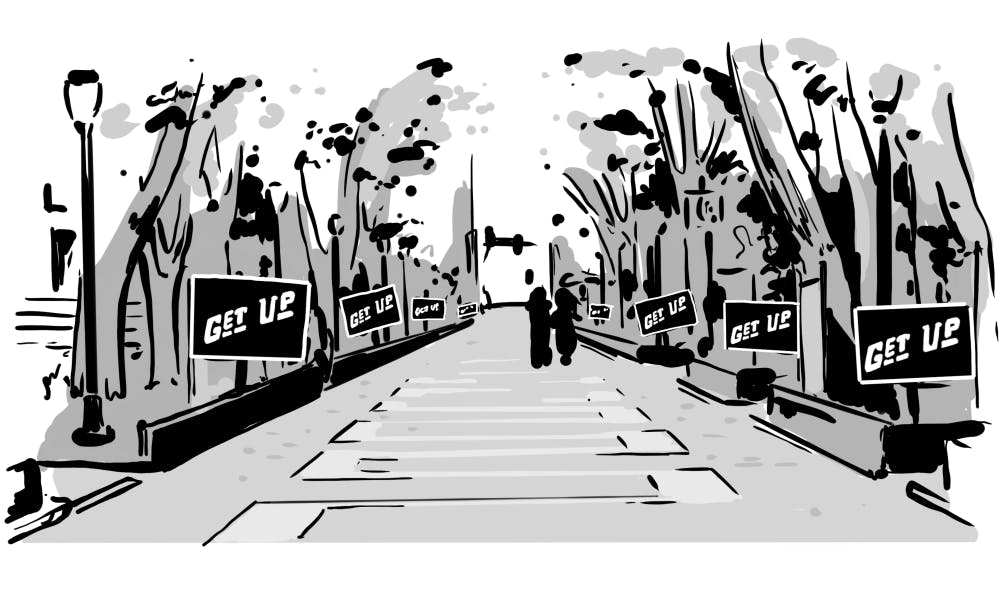
Graduate students make up half the student body, yet they are often ignored and their concerns are often disregarded. This was demonstrated once again this week, when Penn finally responded to graduate student complaints that have existed for at least the past year about the living conditions in Sansom Place East. Graduate students aren’t just students — they’re also workers, and they deserve a better, more direct way to complain to their employer. Graduate students need a union, and letting them organize will make Penn a stronger learning environment and home for scholarship for everyone. Penn should recognize the union voluntarily when elections are eventually held.
Last year, after fighting successfully to be able to hold a union election for two years, graduate student-worker group Graduate Employees Together – University of Pennsylvania opted to withdraw their application. This was for good reason, and one that will hold through at least 2020. As long as there is a Republican administration in the White House, there is a severe risk that the National Labor Relations Board will reverse the landmark 2016 decision that recognized Columbia University’s graduate student union if Penn gave them a test case.
But this is not an excuse for Penn’s administration to continue to ignore the voices of graduate workers. The Trump administration will not control the NLRB forever, and graduate students may once again be able to plead their case for a union as soon as 2020.
Until then, the University must reconsider its position that it is not possible to be both a student and a worker. This position is not only a rejection of the legal decision already handed down by the Philadelphia Labor Relations Board. It also impedes and damages the lives and futures of graduate students at Penn.
Penn could not function without the labor provided by graduate students. They work as teaching assistants, researchers, graduate associates in on-campus housing, and much more. Penn is also the primary or only employer for many graduate students who face enormous academic workloads and stressors on top of their labor.
It may not be convincing enough for the University that good working conditions are a basic right. Penn would be wise to consider their own interest as well. Institutions function better with union workers because they are more productive. For graduate students, better health insurance can mitigate anxiety over medical issues and higher wages can eliminate the need for an additional job, both of which allow these students to focus more on teaching and research.
There are also other ethical considerations. Penn has a responsibility to provide better living conditions for graduate students who opt to live on campus, which administrators seemed to acknowledge by scheduling a focus group next month on this issue. A union could also help protect graduate students from sexual harassment and assualt, which is a serious problem at the University among graduate and undergraduate students. Penn could see this as an opportunity to address the troubling results of the Association of American Universities' 2019 Campus Climate Survey, which found that 7.5% of graduate women and 2.7% of graduate men had reported experiencing unwanted sexual contact since entering college.
A graduate student union will make the University a healthier, more productive, learning environment for everyone — undergraduates with better TAs, professors with better research assistants, and graduate students with the resources and support to be both workers and students. Penn has at least another year to keep fighting against GET-UP. Instead, administrators must stop seeing graduate students as adversaries, and start supporting their efforts to unionize.
Editorials represent the majority view of members of The Daily Pennsylvanian, Inc. Editorial Board, which meets regularly to discuss issues relevant to Penn's campus. Participants in these meetings are not involved in the reporting of articles on related topics.
The Daily Pennsylvanian is an independent, student-run newspaper. Please consider making a donation to support the coverage that shapes the University. Your generosity ensures a future of strong journalism at Penn.
Donate



